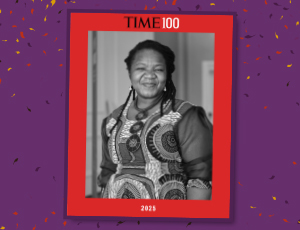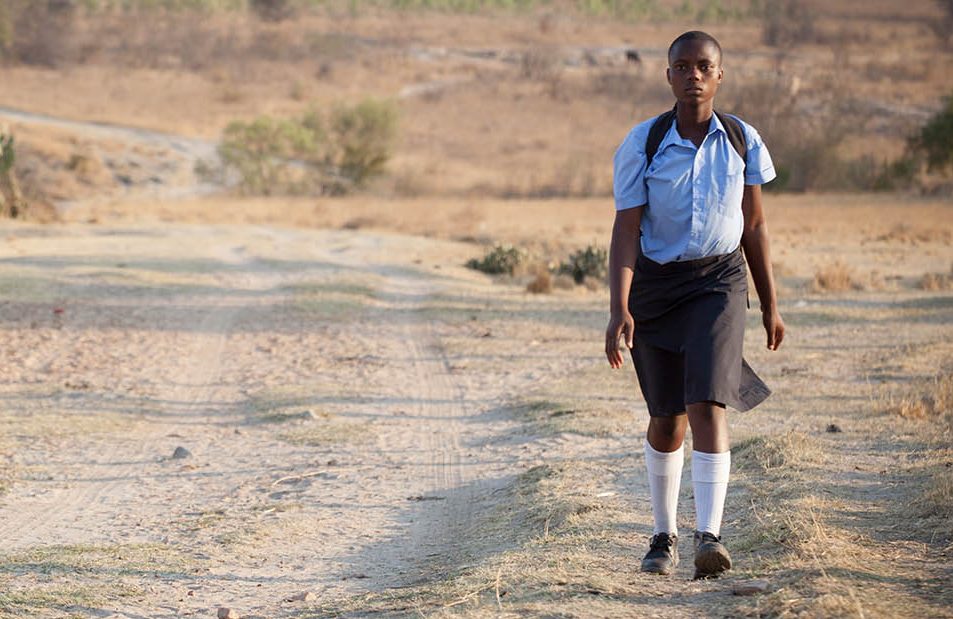
TIME100 Most Influential People
CAMFED CEO, Angeline Murimirwa, named to TIME’s list of the world’s 100 most influential people.


Together with our alumnae network, CAMA, CAMFED teamed up with the Global Footprint Network to highlight compelling evidence that girls’ education is one of the most effective ways of tackling resource constraints and climate change, helping the global community to #MoveTheDate.
Having access to education gives girls and women more control over their lives. They tend to choose to have fewer children, reducing the pressure on the little resources available, and therefore reducing the effects of climate change.
Esnath Divasoni, CAMA Leader & Student at Earth University, Costa Rica
Esnath comes from the rural district of Wedza in Zimbabwe, where her family, like many others, relied on agriculture to earn a living. After Esnath’s father lost his job on a commercial farm, CAMFED stepped in to cover the costs of her secondary education. She excelled academically, and later won a scholarship through the Mastercard Foundation to pursue a degree in Agricultural Science and Natural Resources Management at Earth University in Costa Rica.
In a new blog, Esnath shares her vision for achieving a sustainable future using climate smart agriculture, to benefit people and the planet. After her degree, she plans to establish a model farm in Zimbabwe where she will demonstrate new farming techniques she has learnt at university.
Empowering rural women to cope with resource limitations and achieve better crop yields will enable increased financial agency, and the chance to invest in their children’s education. This feeds into the ‘virtuous cycle’ which Esnath and her fellow CAMA members perpetuate, by supporting the next generation to go to school, succeed, and lead.
Esnath shares her vision for a sustainable future led by educated and empowered women.
We know that an educated girl will:
Read Esnath’s blog – ‘How girls’ education will help my community become climate smart’
Find out more about how girls’ education tackles climate change
Yeison Calderon $52.9
Pierce Gendron $42.4
Kate Smith $52.9
Laurie Calvin $10.9
Kate Smith $10.9
Ty and Bobby Johannsen $158
Justine Henson $10.9
Larry McMullen $211
DJ Feather $158
Ajai Raj $14
JAMES STOREY $52.9
Henry Hamelin $100
Tracy Lyou $106
Sarah Kiefer $158
Susan Westphal $14